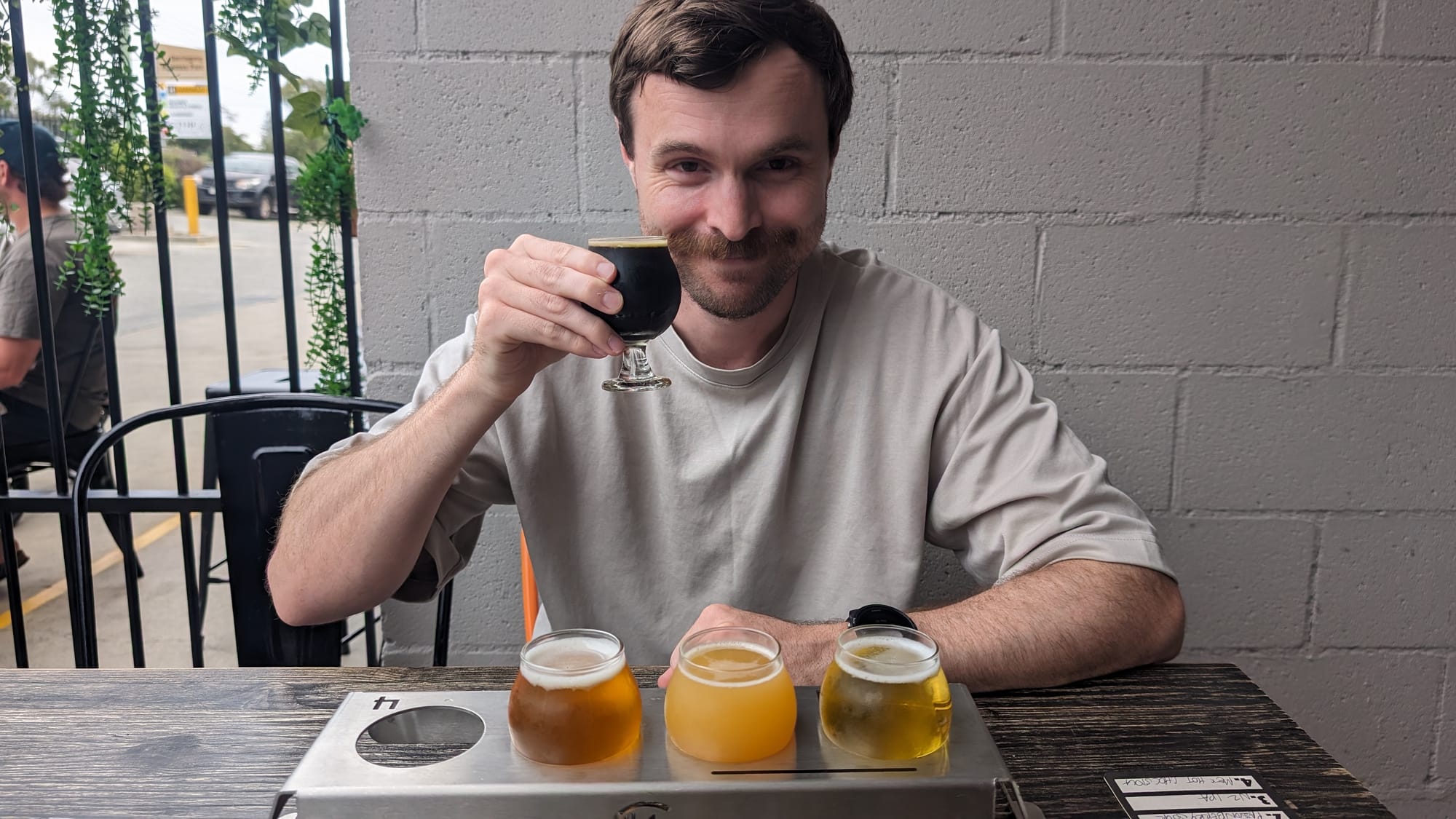Welcome to SWOT by Sound Story, your weekly inside track on the Strengths, Weaknesses, Opportunities and Threats looming for the entertainment industry.
⚡️ Trending: White supremacist memes, the #MeToo movement, and Super Bowl conspiracy theories chart the strange evolution of the far right’s feelings about Taylor Swift. Words by Miles Kee. Source: Rolling Stone.
🌏 Global: U.K. broadcaster Channel 4 confirms 200 layoffs and reveals plans for becoming ‘digital-first public service streamer by 2030’ Words by Naman Ramachandran. Source: Variety.
💰 Money: Which Australian advertisers spent the most in 2023? Words by Kalila Welch. Source: Mumbrella.
🌶️ Spicy: Charli XCX has dropped a list of fkd-up marketing ideas her team suggested, and no doubt sent them into a spiral. Or, she’s trolling us all. Words by Matt Galea. Source: Pedestrian.
📰 Media: The ABC is working on its own large language model – a type of artificial intelligence trained on vast amounts of data – to “enhance” its work, while also warning staff against using AI platforms like ChatGPT or Midjourney to create content for news. Words by Sam Buckingham-Jones. Source: The Australian Financial Review.
Strength: The Ascent of the Superfan
With Taylor Swift's record-breaking Eras Tour just a fortnight away from hitting Australian shores, more and more music and media noise will be focused on “Swifties” this month. Taylor Swift’s superfans receive a lot of attention for their dedication, engagement and economic contribution, but she’s not the only one set to benefit from this high-spending cohort.
👉 Superfans tend to spend 126% more on artist merchandise than average music listeners and 76% more on physical music, according to Fast Company.
👉 Overall, superfans spend about 68% more on music every month than the average listener.
👉 Superfans could also be set to become a key battleground in the Spotify vs. Apple tax tussle, according to Music Business Worldwide.
👉 That’s a lot of power and influence for groups of fans which have previously been dismissed by some segments of the media as screaming, hyper-fixated nuisances.
Weakness: Music in the Firing Line
The live music sector has once again found itself being flung around as a political football. This latest furore is particularly frustrating due to the seemingly different rules, expectations and social norms applied to live music versus live sport, as well as the political posturing which has once again interfered with live music’s recovery.
👉 The Pandemonium music festival was due to be headlined by Alice Cooper, Deep Purple and Blondie on 25 April – Anzac Day – in Sydney’s The Domain.
👉 Concerns were raised by RSL NSW President Mick Bainbrudge who said a rock concert would intrude on a day for “respect and quiet contemplation” in which people should be thinking about “the sacrifices made by the approximately 120,000 people from NSW who served overseas during World War I, as well as those who have served since”.
👉 NSW Premier Chris Minns then intervened – apparently blindsiding promoter Andrew McManus – and cancelled the gig.
👉 Osman Faruqi, the culture editor of The Sydney Morning Herald and The Age appeared on Nine’s Today Extra calling the Premier’s words “very perplexing”, “bizarre” and “extraordinary”, and pointed out it’s a “really, really confusing stance” given Anzac Day is “also a day where thousands of Australians go to the pub to play 2 Up, we have sports matches where people drink, we have DJs and dance floors”.
👉 Even taking into account the sensitivities and sensibilities around what many see as a sacred day, it’s another unfortunate example of live music being demonised and dismissed, while other national pastimes (such as watching live sport, drinking at pubs and gambling) seem to get a free pass.
(A Missed) Opportunity: Goliath (Universal Music Group) vs. Goliath (TikTok)
Pick your fighter: an international conglomerate occasionally accused of not caring enough about the interests of musicians, their creative freedoms and the money they make; or an international conglomerate occasionally accused of not caring enough about the interests of musicians, their creative freedoms and the money they make.
That’s right – it’s the world’s largest record label (Universal Music Group), versus one of the world’s biggest tech platforms (TikTok).
👉 Negotiations between the two giants broke down this week, ensuring that (at least for now), the music of artists signed to Universal and its subsidiaries won’t be available to fans, content creators and viewers on TikTok.
👉 It’s been quite the tit for tat between the two companies, each accusing the other of being greedy, not negotiating in good faith and causing issues for artists.
👉 So, is this a missed opportunity to strike a better deal and tell a better, more positive music/ tech story?
📌 Vivienne Kelly: I think The Music Network’s Lars Brandle said it best when he said this public spat really takes the cake of music industry battles at the moment. Going public with these kinds of big-ticket negotiations is one way to try and get the upper hand – and who doesn’t love an open letter? – but now it feels like artists are being used as bargaining chips.
📌 Zanda Wilson: Like it or not, TikTok is one of the few tried and tested places to break a song as an artist in 2024. This not only goes for unknown artists breaking their first hit, but also Aussie artists exporting their music overseas. TikTok-fuelled virality, along with the frequent knock-on effects on places like Instagram Reels, really has become such a significant part of the music cycle of a hit song. So what now? Any artist manager or publicist associated with a Universal-signed artist must at least be considering their options in the event a deal isn’t struck.
📌 Jane Elliott: The music industry has been significantly impacted by the rise of TikTok – it’s helped identify new talent, revive classic songs and reignite careers. Radio programmers are monitoring the platform to discover new music, impacting airplay. Appropriate compensation and AI are important issues that should be discussed - and not just on this platform. But, in the meantime, artists and songwriters will be the ones most impacted by this stoush!
📌 Jake Challenor: If Universal does pull its music from TikTok, it means songs from international stars such as Taylor Swift, Billie Eilish and Drake, as well as local artists such as Tame Impala and Peach PRC won’t be available to sync and stitch on the platform. For artists such as Peach PRC who built their personal brand, explored their music and connected with their fans online before landing a record deal, it seems an especially big blow.
Threat: The (Artificial) Blame Game
Who could escape the debate this week about AI – its role in newsrooms, its in-built biases and the threat it poses to women’s identities and safety online – and the human touch? It also devolved into a masterclass in how not to handle questions about accountability and responsibility.
👉 Georgie Purcell, a Member of Parliament for the Animal Justice Party, had her image used – and manipulated – for a news report Nine News. A comparison between the original image and the one which hit our screens made it immediately obvious that her body and her clothing had been altered, making her clothing appear more revealing.
👉 Initially, people assumed this was a terrible, manipulative and deliberate use of Photoshop to incite certain assumptions and biases in the minds of viewers and paint Purcell in a certain light – something which many people noted would not happen to, say, Peter Dutton or Anthony Albanese.
👉 The kicker came with Nine’s statement, which shifted blame and responsibility from a human graphic designer, and hinted at Adobe Photoshop’s new generative AI features.
👉 “Our graphics department sourced an online image of Georgie to use in our story on duck hunting. As is common practice, the image was resized to fit our specs. During that process, the automation by Photoshop created an image that was not consistent with the original,” Hugh Nailon, director of 9News Melbourne, said, while offering an apology and noting the incident did not meet the broadcaster’s “high editorial standards”.
👉 Adobe, however, was having none of that. “Any changes to this image would have required human intervention and approval,” an Adobe spokesperson said, casting doubt on Nine’s claims.
👉 The unsettling incident, and underwhelming response from Nine, has highlighted the risks posed by AI, but also the reputational risks of assuming people will accept that as a reason for oversights, mistakes or something more sinister.
👉 If AI is responsible, a human is still accountable.
The Fun Stuff
Quote of the Week: “It's not my problem, really. It's my problem to do the show. But it's not, not really my problem to figure out where to put the show on,” – Blondie, speaking to Today about her views on where the Pandemonium festival should be staged.
🎤 Interview of the Week: Variety Australia’s Poppy Reid sat down with Mark Klemens, managing director of Profile Talent Management, to talk about what goes on behind the scenes when it comes to talent, media, influence and shaping stardom.
🍻 Team Tidbit: Sound Story’s Zanda Wilson ticks another independent brewery off his list down at Stoic Brewing. #indies






